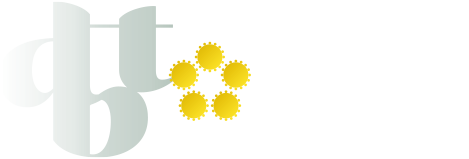Optimizing DBT for Neurodiverse Clients
Total of 8 hours across 4 days: Tue 25 & Wed 26 Feb AND Tues 4 & Wed 5 March 2025
Online registrations closed on 23 February 2025 for this training.
Optimizing DBT for Neurodiverse Clients
An eight-hour virtual live (online) training (4 blocks of 2 hours each)
Lorie Ritschel, PhD, ABPP, and Sami Ascanio, LCSW-C
Description
Many mental health professionals lack training in assessing autism or working with autistic individuals, and are often unaware of their knowledge gaps. This can lead to unrecognized neurodiversity in clients. Autism, viewed through a medical model, is a neurodevelopmental disorder involving social deficits and repetitive behaviors. Through a social model, it's a neurotype, with challenges arising from navigating a world designed for non-autistic individuals, and creating a chronically invalidating environment.
Autistic individuals face higher rates of mental health issues, including anxiety, depression, and suicidal behaviors, yet encounter barriers to neuroaffirmative treatments. Providers may either decline to work with them or fail to adapt treatments to their neurotype, leading to ineffective care.
Research suggests that DBT can reduce suicidal behaviors in autistic adults without intellectual disability. Autistic clients have found DBT skills useful for emotional regulation and self-understanding but recommend modifications like simplified materials, visual supports, and explicit neurodiverse applications.
This workshop will be divided into four segments, during which the presenter will discuss characteristics of autism that clinicians should consider (e.g., autistic learning styles, sensory profiles); implications for treatment; incorporating the client’s neurotype into case conceptualization; potential modifications for DBT skills delivery; and incorporating best practices for autism into individual DBT.
This training event is being cohosted with our colleagues DBT New Zealand.
Learning Objectives
Upon completion of this workshop, participants will be able to:
- List 2 autism-specific concepts to consider during case conceptualization with autistic individuals
- Identify 8 sensory areas that should be assessed with neurodiverse clients
- Describe 2 or more ways to modify DBT skills training/delivery to be more neurodiversity-affirming
- List 3 or more potential accommodations that could be made to reduce sensory overwhelm in autistic clients
- Describe how a neurotypical environment can be pervasively invalidating for an autistic individual
Target Audience
This webinar is designed for mental health professionals and trainees who have some
familiarity with DBT and are interested in expanding their understanding of
neurodiversity-affirmative care. Please note the following:
- We will not be covering the basic DBT strategies and framework; rather, this training will focus on how to apply DBT principles when working with neurodiverse individuals.
- We will focus on what is known in DSM5 as Level 1 autism without intellectual disability.
Times and dates
To manage a range of time zones, this training will be split into four 2-hourly blocks. The blocks will all be at the same times on each of the four days: Tuesday 25 Feb, Wednesday 26th Feb, Tuesday 4th March and Wednesday 5th March 2025. Time are specified below. Please note full attendance is required to recieve a statement of full attendance.
Are you a healthcare student?
We are offering a 20% discount for a limited number of students enrolled in a mental health related qualification with an Australian University or similar tertiary healthcare program in Australia. If you are eligible, please contact us with a photo copy of your student ID and we’ll provide a student discount code for your registration.
Trainers
 Lorie Ritschel, PhD, earned her doctorate in Clinical Psychology from the University of Kansas and completed postdoctoral fellowships at Duke University Medical Center and Emory University School of Medicine. Dr. Ritschel is an expert trainer and consultant of DBT and the DBT Prolonged Exposure protocol through Behavioral Tech and Harned Consulting. She is a board certified DBT therapist through the DBT-Linehan Board of Certification. She is an Associate Professor in the Department of Psychiatry at UNC Chapel Hill School of Medicine, where she collaborates with the TEACCH Autism
Lorie Ritschel, PhD, earned her doctorate in Clinical Psychology from the University of Kansas and completed postdoctoral fellowships at Duke University Medical Center and Emory University School of Medicine. Dr. Ritschel is an expert trainer and consultant of DBT and the DBT Prolonged Exposure protocol through Behavioral Tech and Harned Consulting. She is a board certified DBT therapist through the DBT-Linehan Board of Certification. She is an Associate Professor in the Department of Psychiatry at UNC Chapel Hill School of Medicine, where she collaborates with the TEACCH Autism
program to adapt DBT for autistic individuals. She has published and presented her work in numerous national and international venues. Dr. Ritschel is also a co-owner of the Triangle Area Psychology Clinic (TAP), an outpatient private practice in Durham, NC, where she and her colleagues treat adolescents, adults, couples and families using a range of evidence-based treatments.
 Sami Ascanio, LCSW-C, is an Autistic clinician with extensive expertise in adapting Dialectical Behavior Therapy (DBT) to meet the needs of Autistic clients. As a neurodivergent individual, Sami possesses a unique understanding of the needs and experiences of Autistic clients, enabling her to effectively apply DBT principles to help clients achieve their life goals and educate others in this approach.
Sami Ascanio, LCSW-C, is an Autistic clinician with extensive expertise in adapting Dialectical Behavior Therapy (DBT) to meet the needs of Autistic clients. As a neurodivergent individual, Sami possesses a unique understanding of the needs and experiences of Autistic clients, enabling her to effectively apply DBT principles to help clients achieve their life goals and educate others in this approach.
Sami currently serves as the Director of DBT Programming at Capital Youth Services. She is certified as a DBT clinician by the prestigious DBT-Linehan Board of Certification and leads the DBT-LBC Certified DBT program at Capital Youth Services. In collaboration with her colleague, Sami acts as a lead program reviewer for the Linehan Board, conducting comprehensive reviews of DBT programs worldwide seeking certification.
Details:
Where:
When:
Times:
Registration:
Registrations are managed online (see below)Cost:
Payment options: Credit card payment.
Terms and conditions:
- A registration is for one person. To successfully manage the event, we expect only one person to join the webinar as part of your registration.
- You agree not to record the meeting in any way. You agree not to distribute materials to other persons without prior agreement.
- Registrations are confirmed only when payment is received by credit card or electronically.
- Payment must be made before the training. By registering you accept liability for the costs of the training.
- Cancellations must be notified to us by email (or the website contact form) with full identifying information.
- Cancellations received more than seven days before the event will receive a refund of the fees paid less an administration charge of $50+GST (for each event).
- Refunds cannot be given after that date. Refunds will not be available until after the event.
- A colleague may be substituted for no extra charge if we are notified at least two business days before the training event.
- In the unlikely event the training is cancelled by the organisers, registration will be fully refunded but no liability will be accepted for travel, accommodation or other costs/expenses incurred to registrants.
- Online statements of attendance can be downloaded by all participants from this page. Printed certificates of attendance are not available for this event.
Online registration:
Online registrations closed on 23 February 2025 for this training.
You can contact us here with any enquiries about this training.

